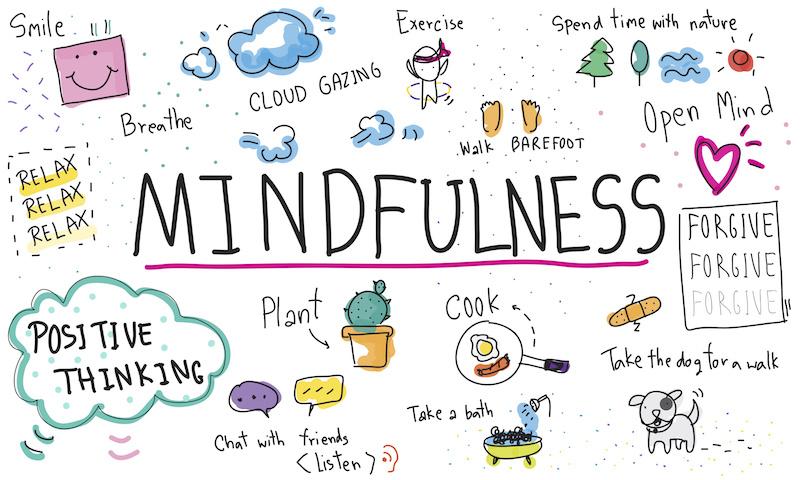
by Seema Bux | Resolution Strategies, Family Communication, Mindful Communication, Mindful Relationships
Discover mindful conflict resolution strategies to foster healthier family dynamics. Explore effective techniques to address and resolve conflicts in a compassionate and constructive manner.
Families, like constellations, are beautiful formations bound by love, but occasionally marred by friction. We share our deepest values, vulnerabilities, and histories, making disagreements inevitable. These clashes, however, needn’t be thunderous storms breaking our connections. With mindfulness, we can transform them into opportunities for growth and understanding.
Mindfulness, at its core, is about non-judgmental awareness of the present moment. Applying this practice to family conflicts requires a shift in perspective. Instead of reacting immediately, we can:
1. Pause and Breathe:
Before responding, take a few deep breaths. This simple act activates the calming parasympathetic nervous system, giving you clarity and space to choose your response rather than be governed by impulsiveness.
2. Listen Deeply:
Truly hear what the other person is saying, not just the words, but the emotions and experiences behind them. Active listening involves making eye contact, nodding, and occasionally summarizing their points to ensure understanding. This fosters connection and shows respect, creating a safe space for open communication.
3. Validate Feelings:
Acknowledge and accept the other person’s emotions without judgment. Saying things like “I understand you’re feeling frustrated” or “It must be upsetting for you to…” goes a long way in defusing tension and building trust.
4. Use “I” Statements:
Shift the focus from blame to ownership of your feelings and needs. Instead of saying, “You never clean up after yourself,” try “I feel overwhelmed when the house is messy.” This approach avoids accusations and promotes constructive dialogue.
5. Focus on the Problem, not the Person:
Separate the issue at hand from personal attacks or criticisms. Stick to the specific behavior or situation causing the conflict, avoiding generalizations or character assassination.
6. Seek Common Ground:
Instead of getting lost in “right” and “wrong,” look for what you both value and desire. Can you find a solution that meets everyone’s needs, even partially? Collaboration thrives on understanding shared goals, paving the way for compromise and win-win situations.
7. Forgive and Move On:
Holding onto grievances only poisons the well of family relationships. Practice forgiveness, not for the other person, but for your own peace of mind. Let go of past hurts and choose to move forward with renewed understanding and compassion.
Remember, mindfulness is a practice, not a destination. There will be moments of frustration and setbacks, but with each conscious effort, you strengthen your family’s conflict resolution muscle. Remember, your home is a sanctuary, not a battleground. Choose kindness, choose understanding, and choose to grow together through life’s inevitable disagreements.
By implementing these mindful practices, your family can navigate conflicts with more empathy, collaboration, and ultimately, a deeper bond. Remember, disagreements are not cracks in the foundation; they are opportunities to reinforce it, brick by mindful brick.

by Seema Bux | Mindful Eating, Mealtime Rituals, Mindful Living, Mindful Relationships
Discover the advantages of practicing mindful eating as a family. Learn how shared mindful mealtimes can improve communication, create a positive environment, and enhance overall well-being.
Sharing a Bite of Mindfulness: How Shared Mealtimes Can Boost Communication
In our fast-paced world, it can be easy to let mealtimes become hurried affairs, fueled by distractions and quick bites. But what if we told you that taking a more mindful approach to mealtimes could not only improve your physical health but also strengthen your relationships? Shared mindful mealtimes, where we focus on the present moment and savor the experience of eating together, can be a powerful tool for boosting communication and connection.
The Power of Presence at the Table
Mindful eating involves being fully present at the table, free from distractions like phones or technology. This allows us to focus on the sensory experience of the food, from the aroma and appearance to the taste and texture. It also creates a space for mindful listening and conversation, as we become more attuned to the verbal and nonverbal cues of those around us.
Benefits of Eating Together
Here are some benefits of eating together:
Strengthens Relationships and Communication
- Shared meals provide a dedicated time for families to connect and talk without distractions. This can help to strengthen bonds and build intimacy.
- Eating together encourages conversation and communication. Sharing stories, laughter, and experiences around the table can help family members feel closer and more connected.
- Mindful mealtimes, where everyone focuses on the present moment and the experience of eating together, can be particularly beneficial for communication. This can help people to listen more attentively, express themselves more openly, and develop empathy for others.
Improves Physical and Mental Health
- Eating together can help people to make healthier food choices. When people cook and eat together, they are more likely to choose fresh, healthy ingredients and prepare meals from scratch.
- Shared meals can help to reduce stress and anxiety. The relaxed atmosphere and social interaction at mealtimes can help people to unwind and de-stress.
- Eating together can also help to improve mental health. Studies have shown that people who eat together regularly are less likely to experience depression and anxiety.
- Eating together can help to create and pass down family traditions and values. Mealtimes can be a time to share stories about family history, celebrate holidays, and teach children about important life lessons.
- Shared meals can also help to build a sense of belonging and community. Knowing that there is a time each day when everyone comes together to eat and connect can provide a sense of comfort and security.
- Eating together can be a fun and enjoyable experience for everyone involved. When people make the effort to sit down together and share a meal, it can create lasting memories and strengthen family bonds.
Communication Benefits of Mindful Mealtimes
When we are present and engaged during mealtimes, several communication benefits arise:
- Deeper listening: Without distractions, we are better able to hear and understand what others are saying, leading to more meaningful conversations.
- Increased empathy: By paying attention to nonverbal cues like facial expressions and body language, we can better understand the emotions and experiences of others.
- Enhanced self-expression: A mindful atmosphere encourages open and honest communication, allowing everyone to share their thoughts and feelings freely.
- Stronger family bonds: Shared mealtimes provide a natural opportunity for families to connect and build stronger relationships.
Tips for Creating Mindful Mealtimes
Here are some tips for creating mindful mealtimes in your household:
- Set aside dedicated time for meals: Avoid eating on the go or in front of the TV. Create a space where you can sit down together and focus on the meal.
- Minimize distractions: Put away phones and other electronic devices during mealtimes.
- Start with gratitude: Take a moment to express gratitude for the food and the company you share it with.
- Focus on the senses: Pay attention to the colors, smells, tastes, and textures of the food. Chew slowly and savor each bite.
- Engage in conversation: Ask questions, share stories, and listen attentively to others.
- Make it a regular practice: The more you make mindful mealtimes a part of your routine, the easier it will become.
Remember, mindful eating is a journey, not a destination. There will be times when distractions arise or conversations get sidetracked. The important thing is to gently bring your attention back to the present moment and continue to practice mindful eating. With time and effort, you’ll discover that shared mindful mealtimes can be a source of nourishment not only for your body but also for your relationships.
Additional benefits of mindful mealtimes:
- Reduced stress: Mindful eating can help to reduce stress and anxiety levels.
- Improved digestion: Eating slowly and paying attention to your body’s signals can lead to better digestion.
- Increased weight awareness: Mindful eating can help you to become more aware of your hunger and fullness cues, which can lead to healthier eating habits.
I hope this information is helpful! Please let me know if you have any other questions.

by Seema Bux | Mindful Parenting, Emotional Intelligence, Mindful Parent-Child Interactions, Mindfulness and Health
Embrace mindful parenting to support your child’s healthy development. Explore how mindful approaches can promote emotional well-being and build a strong parent-child connection.
Mindful Parenting: Nurturing Healthy Child Development
In today’s fast-paced world, it’s easy for parents to get caught up in the hustle and bustle of daily life. We juggle work, family, and social commitments, often leaving little time to be truly present with our children. But what if there was a way to parent that not only met our children’s needs, but also helped them thrive? That’s where mindful parenting comes in.
What is mindful parenting?
Mindful parenting is a conscious approach to raising children that is based on the principles of mindfulness. Mindfulness is the practice of paying attention to the present moment without judgment. It’s about being aware of our thoughts, feelings, and bodily sensations without getting caught up in them. When we apply mindfulness to parenting, we become more attuned to our children’s needs and emotions, and we respond to them in a more compassionate and effective way.
Benefits of Mindful Parenting
There are many benefits to mindful parenting, for both parents and children. Some of the benefits for children include:
- Improved emotional well-being: Children raised with mindful parents tend to have higher levels of emotional intelligence, self-esteem, and resilience. They are better able to cope with stress and difficult emotions.
- Stronger relationships: Mindful parenting fosters strong bonds between parents and children. Children feel safe and loved, and they learn to communicate effectively with their parents.
- Enhanced cognitive development: Mindfulness practices can help children improve their focus, attention, and memory.
- Greater empathy and compassion: Children who are raised with mindfulness are more likely to be empathetic and compassionate towards others.
Benefits for parents
Mindful parenting also benefits parents in many ways. Some of the benefits include:
- Reduced stress: Mindfulness can help parents cope with the stress of parenting. It can also lead to a greater sense of calm and peace.
- Improved communication: Mindful parents are better able to communicate effectively with their children. They are more likely to listen attentively and avoid reacting impulsively.
- Stronger sense of self: Mindfulness can help parents become more aware of their own needs and values. This can lead to a stronger sense of self and a more fulfilling life.
How to practice mindful parenting
There are many ways to practice mindful parenting. Here are a few tips:
- Be present: Put away your phone and other distractions when you are with your child. Make eye contact and listen attentively to what they have to say.
- Accept your child’s emotions: Don’t try to control or judge your child’s emotions. Simply be there for them and offer support.
- Practice mindfulness exercises: There are many mindfulness exercises that you can do with your child, such as mindful breathing, guided meditations, and yoga.
- Take care of yourself: It’s important to make time for your own self-care. When you take care of yourself, you are better able to take care of your child.
Mindful parenting is a journey, not a destination. It takes time and practice to cultivate the skills of mindfulness. But even small changes can make a big difference in your child’s life. So be patient with yourself and enjoy the journey!
I hope this article has given you a better understanding of mindful parenting. If you are interested in learning more, there are many resources available online and in libraries. You can also find mindfulness classes and workshops for parents in your community.
Additional tips:
- Start small: Don’t try to change everything at once. Start by incorporating a few mindful practices into your day.
- Be patient: It takes time to learn and practice mindfulness. Don’t get discouraged if you don’t see results immediately.
- Have fun: Mindfulness can be a playful and enjoyable experience. Find ways to incorporate mindfulness into activities that you and your child enjoy.
Remember, the most important thing is to be present with your child and show them love and compassion. When you do that, you are on the path to mindful parenting.

by Seema Bux | Mindful Parenting, Emotional Intelligence, Mindful Parent-Child Interactions
Build emotional resilience in children with mindful practices. Learn how mindfulness can help children manage emotions, cope with challenges, and develop a positive outlook on life.
Cultivating Inner Strength: How Mindfulness Builds Emotional Resilience in Children
In a world brimming with challenges, the ability to bounce back from adversity is more crucial than ever. For children, navigating the choppy waters of emotions and life experiences can be particularly daunting. This is where emotional resilience comes in, the bedrock of a child’s well-being that allows them to face setbacks, weather storms, and learn from challenges. Fortunately, nurturing this precious quality doesn’t require special superpowers, but a simple yet powerful tool: mindfulness.
What is Mindfulness?
Mindfulness, like a lighthouse in a foggy sea, helps children navigate the often turbulent waters of their inner world. It’s about paying non-judgmental attention to the present moment, observing thoughts and feelings without getting swept away by them. Think of it as training the mind to be a calm and aware observer, rather than a slave to its every whim.
Why Mindfulness Matters for Emotional Resilience
Emotional resilience isn’t about shielding children from every bump in the road. It’s about equipping them with the tools to manage their emotions, overcome challenges, and emerge stronger. This is where mindfulness plays a crucial role:
- Enhanced Self-Awareness: Mindfulness helps children tune into their internal world, recognizing their thoughts, feelings, and bodily sensations. This self-awareness is the foundation for understanding and managing emotions effectively.
- Improved Emotional Regulation: When children are mindful, they don’t get swept away by emotional storms. They learn to observe their emotions without judgment, allowing them to choose their responses rather than being ruled by their feelings.
- Increased Stress Resilience: Mindfulness practices like deep breathing and meditation can equip children with coping mechanisms to manage stress and anxiety. This inner calm and stability allows them to approach challenges with a clear head and greater flexibility.
- Boosted Empathy and Compassion: Mindfulness fosters kindness and understanding, both towards oneself and others. This sense of connection and compassion helps children navigate social situations, manage conflict, and build healthy relationships.
Bringing Mindfulness into Your Family
The wonderful thing about mindfulness is that it can be easily woven into the fabric of everyday life, making it accessible to everyone. Here are a few ways to nurture emotional resilience in your children through mindfulness:
- Start Simple: Begin with short mindfulness exercises like mindful breathing or body scans. Five minutes a day can make a big difference!
- Make it Fun: Turn mindfulness into a playful adventure. Try mindful nature walks, mindful drawing, or even mindful board game nights.
- Lead by Example: Children learn by watching adults. Integrate mindfulness into your own life and model mindful behavior for them to observe and emulate.
- Create a Safe Space: Let your child know that it’s okay to experience all kinds of emotions. Foster open communication and create a safe space for them to share their feelings without judgment.
- Celebrate the Journey: Remember, mindfulness is a lifelong practice. Celebrate the small victories, acknowledge challenges, and encourage your child to be patient and kind with themselves on their journey to inner strength.
By gently guiding your children on the path of mindfulness, you are equipping them with invaluable tools for navigating life’s ups and downs. Their emotional resilience will not only shield them from adversity but also blossom into a source of strength, compassion, and joy that will carry them through life’s adventures.
1. Emotion Regulation:
Mindfulness practices help children become more aware of their emotions and learn to regulate them effectively. By teaching them to observe their thoughts and feelings without judgment, mindfulness can help children respond to difficult emotions in a more balanced and calm manner.
2. Coping with Challenges:
Mindfulness encourages children to approach challenges with a sense of curiosity and openness, rather than fear or avoidance. This can help them develop resilience and the ability to cope with difficult situations more effectively.
3. Developing a Positive Outlook:
Mindfulness practices promote a sense of gratitude, compassion, and kindness, which can help children develop a more positive outlook on life. By focusing on the present moment and cultivating a sense of appreciation for the world around them, children can learn to see the beauty and joy in everyday experiences.
Overall, mindfulness can provide children with valuable tools for managing their emotions, navigating challenges, and cultivating a positive mindset that can benefit them throughout their lives.
Additional Resources:
Remember, building emotional resilience in children is not about creating an invincible fortress, but about cultivating a strong and flexible inner core. With mindfulness as their guide, your children can navigate life’s storms with grace, resilience, and a heart full of compassion.

by Seema Bux | Mindful Activities
Explore the role of mindfulness in enhancing focus and learning in the classroom. Learn how mindfulness practices can improve students’ attention and academic engagement.
Mindfulness in the Classroom: Enhancing Learning and Focus
Imagine a classroom filled not with frantic scribbling and nervous energy, but with a sense of calm attentiveness. Students are present, focused, and engaged in the learning process. This isn’t just a utopian dream; it’s the reality that mindfulness can bring to education.
What is Mindfulness?
Mindfulness is the practice of paying non-judgmental attention to the present moment. It’s about being aware of our thoughts, feelings, and bodily sensations without getting caught up in them. In the classroom, mindfulness can be as simple as taking a few deep breaths together at the start of a lesson, or practicing a short guided meditation.
Why Mindfulness Matters for Learning
Our brains are like busy marketplaces, constantly bombarded with stimuli. This constant influx of information can make it difficult to focus, especially for young learners. Mindfulness practices offer a powerful antidote to this mental clutter. By training the mind to be present and aware, students can filter out distractions, enhance their focus, and improve their ability to learn.
Benefits of Mindfulness in Education
The benefits of mindfulness for students are numerous and well-documented. Research shows that mindfulness can:
- Improve focus and attention: Mindfulness strengthens the brain’s attention network, allowing students to stay on task for longer periods and resist the lure of distractions.
- Reduce stress and anxiety: Stress and anxiety are major enemies of focus. Mindfulness techniques like deep breathing and meditation can help students manage these emotions, creating a calmer and more conducive learning environment.
- Increase emotional regulation: Mindfulness teaches students to observe their emotions without judgment, fostering self-awareness and emotional intelligence. This, in turn, helps them respond to challenges constructively and maintain focus amidst academic pressures.
- Boost empathy and compassion: Mindfulness fosters a sense of connection with others, leading to improved relationships and a more positive learning environment.
- Enhance creativity and problem-solving: By calming the mind and reducing noise, mindfulness can spark creativity and innovative thinking.
- Heightened Motivation and Engagement: When students are present and aware, they become more interested in the learning process. Mindfulness can spark curiosity, promote active participation, and foster a love for learning.
Bringing Mindfulness into the Classroom
There are many ways to incorporate mindfulness into the classroom, regardless of age or subject matter. Here are a few simple ideas:
- Short and Sweet Mindfulness Breaks: Begin each lesson with a few minutes of mindful breathing, guided visualization, or gentle stretching. These quick exercises can reset the mind, refocus attention, and prepare students for learning.
- Practice mindful listening: Encourage students to listen attentively to each other without interrupting, taking turns to share their thoughts and ideas.
- Integrate mindfulness into lessons: Find creative ways to weave mindfulness practices into the curriculum. For example, in a science class, students can practice mindful observation of natural phenomena, while a history lesson can benefit from a guided meditation exercise exploring past events.
- Create a mindful classroom environment: Designate a quiet space in the classroom where students can go to practice mindfulness when they need a break.
- Lead by example: As the teacher, your own mindfulness practice sets the tone for the classroom. Make time for your own mindfulness exercises and model mindful behavior for your students. Remember, mindfulness is a journey, not a destination. There will be ups and downs, distractions and moments of forgetfulness. But with consistent practice and gentle encouragement, mindfulness can blossom into a powerful tool for enhancing student attention, engagement, and overall learning success.
Remember, mindfulness is a journey, not a destination. It takes time and practice to cultivate mindfulness, and there will be setbacks along the way. But the rewards are well worth the effort. A mindful classroom is a more positive, productive, and enriching learning environment for everyone involved.
Additional Resources:
By incorporating mindfulness into your classroom, you can create a space where students can thrive, both academically and emotionally. So take a deep breath, let go of distractions, and open your mind to the possibilities of mindful learning.
I hope this article has been informative and inspiring. Please let me know if you have any questions or if there’s anything else I can help you with.





